Knowledge about workouts and nutritions, Tips for food intake
Nutrition for injury prevention and recovery
Nutrition for injury prevention and recovery
Nutrition plays a crucial role in injury prevention and recovery for athletes and fitness enthusiasts. Here are some key points to keep in mind:
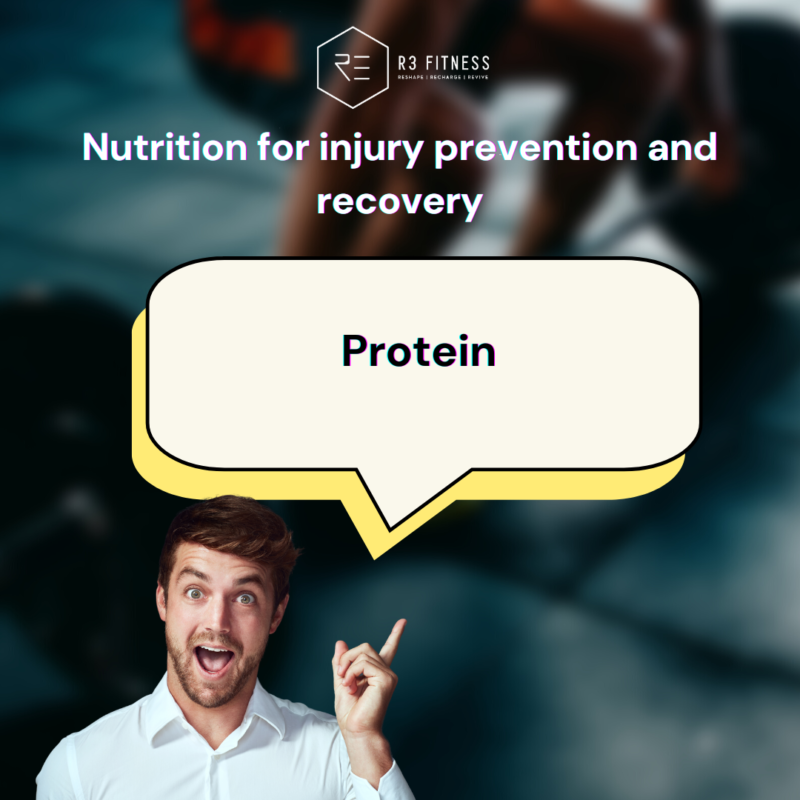
Protein
Protein is essential for tissue repair and rebuilding. It’s important to consume an adequate amount of protein to support muscle recovery and growth. Aim for 1.2 to 2.0 grams of protein per kilogram of body weight per day, depending on the intensity and frequency of your workouts.
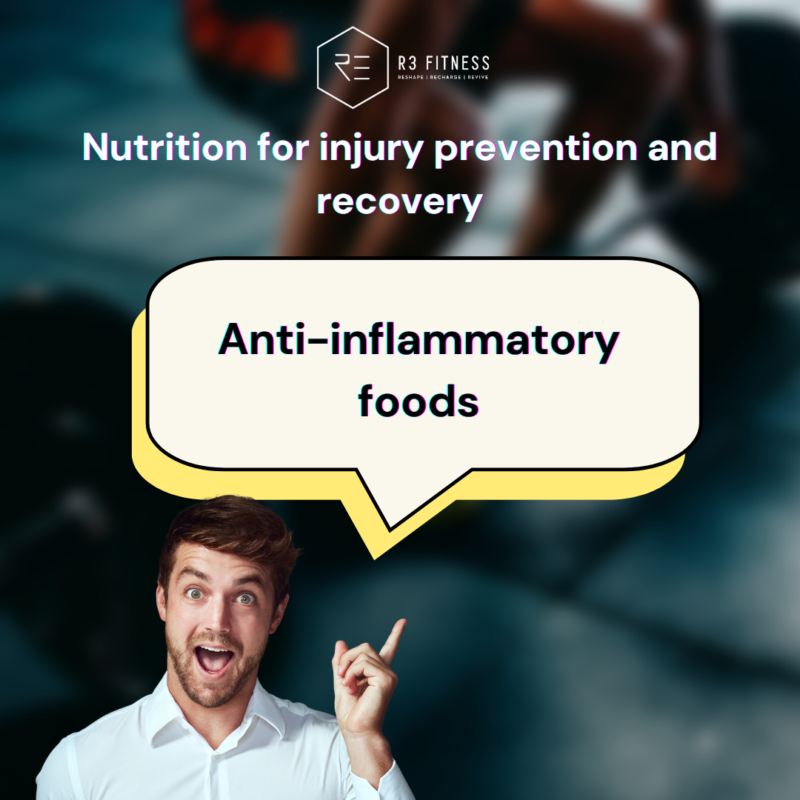
Anti-inflammatory foods
Inflammation is a natural part of the body’s healing process, but chronic inflammation can delay recovery and lead to further injury. To reduce inflammation, consume foods that are rich in antioxidants and omega-3 fatty acids, such as berries, leafy greens, nuts, seeds, and fatty fish.
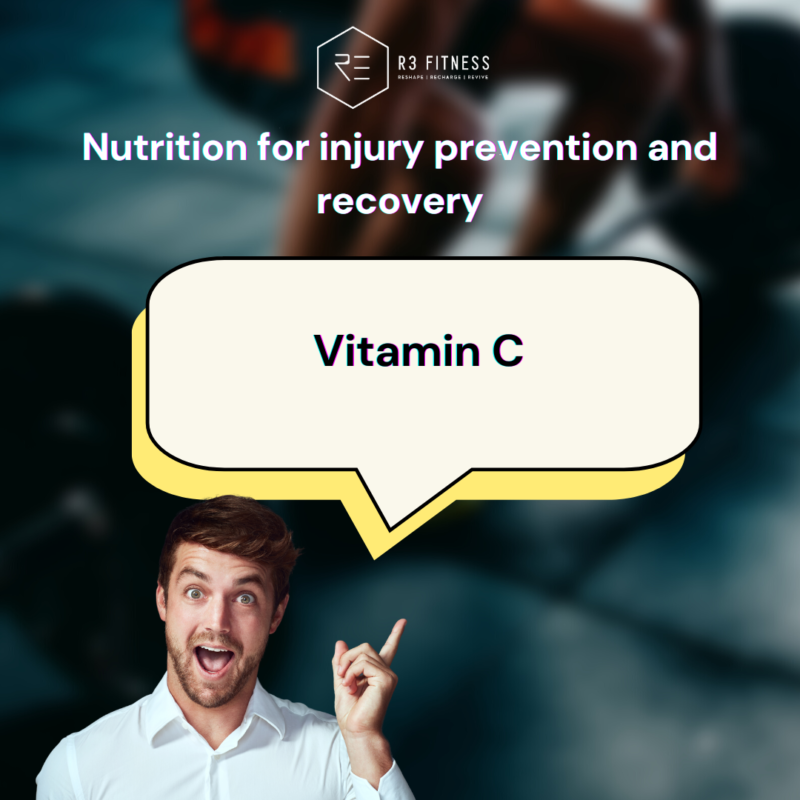
Vitamin C
Vitamin C is a powerful antioxidant that helps the body repair and produce collagen, which is essential for healthy connective tissue. Good sources of vitamin C include citrus fruits, berries, kiwi, and bell peppers.

Calcium and Vitamin D
Calcium and vitamin D are important for bone health and injury prevention. Calcium-rich foods include dairy products, leafy greens, and fortified cereals. Vitamin D is found in fatty fish, egg yolks, and fortified foods. Sun exposure is also a good source of vitamin D.
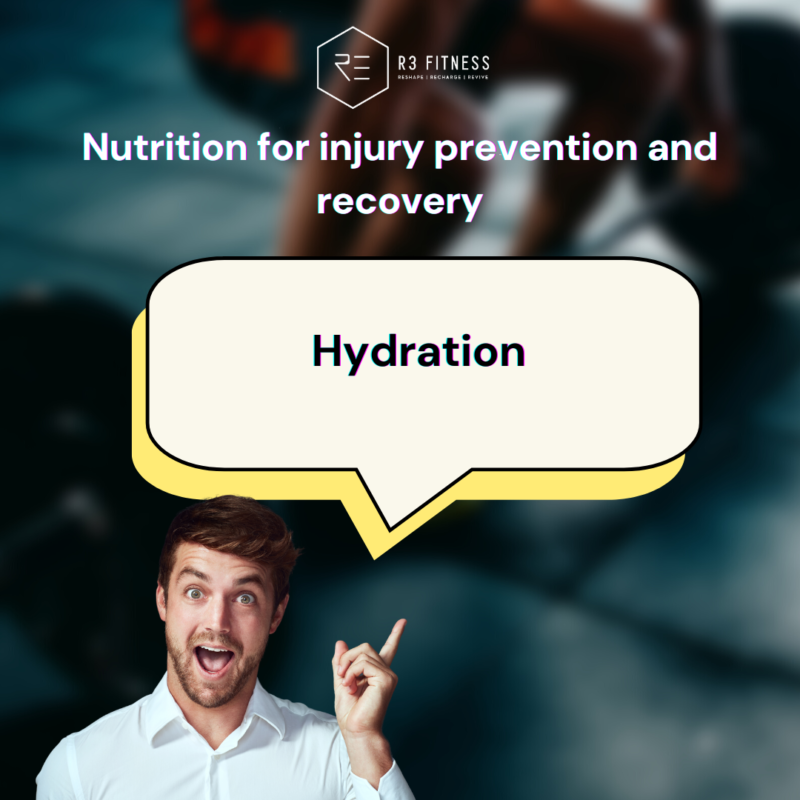
Hydration
Dehydration can impair muscle function and delay recovery. Make sure to drink plenty of water and consume electrolyte-rich foods and beverages, such as coconut water, sports drinks, and fruits like bananas.
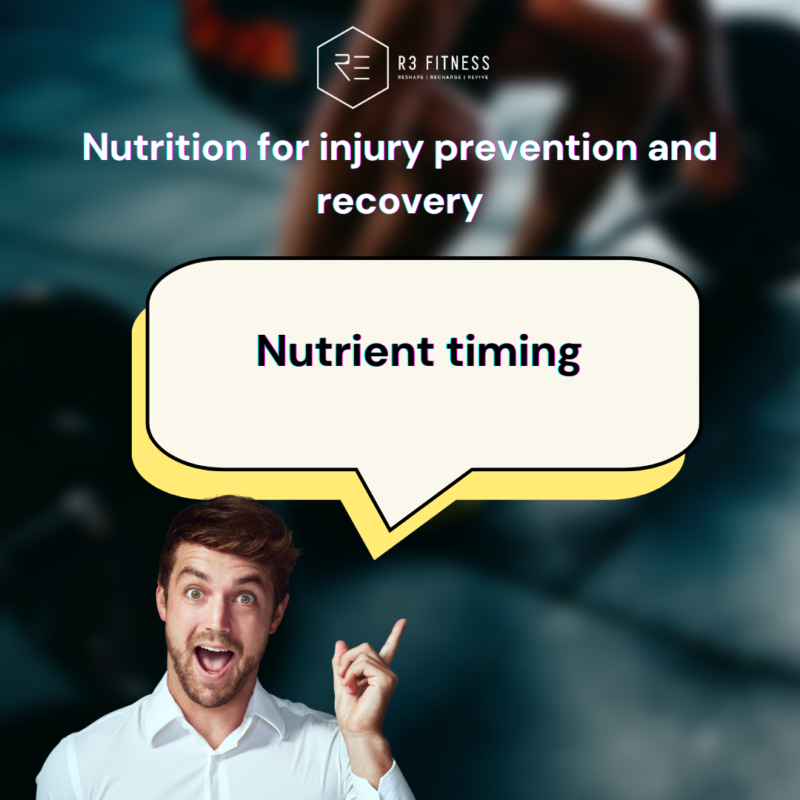
Nutrient timing
Consuming carbohydrates and protein immediately after a workout can help jump-start the recovery process. Aim for a 3:1 or 4:1 ratio of carbohydrates to protein to promote glycogen replenishment and muscle repair.
By following these nutrition tips, you can help prevent injuries and speed up recovery time, allowing you to get back to your workouts faster and stronger.

